Our Master of Social Work (MSW) program builds on your foundation and prepares you for clinical practice, leadership and licensure. You already know the faculty, the campus and the community – why start over? Plus, our 4+1 pathway means you can earn your undergraduate and graduate degrees together in just five years.

Social Work
Start your path to a purpose-driven career with a Bachelor of Social Work from UNC Pembroke. Since 1982, our accredited program has helped students build the skills to lead, serve rural areas and face real-world challenges. Whether you're interested in healthcare, child welfare, mental health or community work, the BSW program gives you the tools to make a difference.
Bachelor of Social Work
To apply to the BSW program, you must:
- Be admitted to UNC Pembroke
- Complete at least 75% of General Education and all prerequisite courses, including:
- ENG 1050
- ENG 1060
- ENG 3700
- PLS 1000/1010
- SOC 1020 or SOC (AIS) 1050/2010
- ECN 1000/2020/2030 or GGY 2060
- PSY 1010
- MAT 1050/1070/1080/1090/2150/2210
- BIO 1030 or 2110
- Have a minimum 2.5 GPA
- Earn a grade of C or better in all pre-social work courses:
- SWK 2000
- SWK 2450
- SWK 3450
- SWK 3050
- SWK 3800
- Submit a satisfactory admission essay
- Provide two professional references
- Complete 40 hours of volunteer experience
Start by declaring pre-social work as your major. Once you complete the required courses and meet GPA guidelines, you'll apply to the full program in your junior year. The application is part of the SWK 3050 course and includes your transcript, an essay, references and proof of volunteer hours.
Applications are submitted during SWK 3050 and are due:
- Fall Applicants: November 15
- Spring Applicants: April 15
The field practicum is the signature experience of the BSW program, giving students the opportunity to apply classroom knowledge in real-world social work settings. With personalized support from faculty and on-site supervisors, students gain practical skills, build professional confidence and prepare for meaningful careers in the field.
Curious about how your courses will help you stay on track for graduation? Advisement guides include course sequences, prerequisites and tips for preparing for fieldwork and graduate study.
- Social Work Scholarships: Listing of social work scholarships compiled by private organizations. Includes sponsored content.
- Ron Brown Scholar Fund: This fund is for young African Americans with leadership potential who are interested in civic engagement and community. In addition to the scholarship, recipients are connected with service and leadership development opportunities.
- A Place for Mom Senior Wisdom Scholarship: A Place for Mom is proud to offer scholarships to university students interested in the fields of aging and gerontology. As North America's largest senior living referral service, we know the importance of supporting the training and education of our future senior care leaders.
- Davis-Putter Scholarship Fund: This is a need-based scholarship fund for students actively advocating for peace and social justice in their community and on campus. Grantees are often active in the struggle against homophobia, racism and sexism, or in building foundations for economic justice and peace.
- North Carolina Forgivable Education Loans for Service: Established by the North Carolina General Assembly in 2011, the Forgivable Education Loans for Service provides financial assistance to qualified students enrolled in an approved education program and committed to working in critical employment shortage professions in North Carolina.
- National Health Service Corps (NHSC) Loan Repayment Program: The NHSC Loan Repayment Program is a part of the U.S. Department of Health and Human Services. It offers loan repayment to social workers who are licensed in the state they plan to serve for a two-year commitment in a shortage area. The Loan Repayment Program offers funding based upon the need of the community in which a provider works.
- State Loan Repayment Program: The North Carolina Office of Rural Health administers the North Carolina State Loan Repayment Program (SLRP). This program helps behavioral health providers provide primary and psychiatric care to people in rural and underserved areas. The Office of Rural Health Placement Services team works to identify opportunities to practice in an integrated care setting that matches the provider's personal and professional needs with community needs. These integrated care opportunities are in a variety of practice settings including Federal Community Health Centers (also known as Federally Qualified Health Centers, or FQHCs), State-Sponsored Rural Health Centers, County Health Departments, State Mental Health Hospitals, Alcohol and Drug Abuse Treatment Centers, Community Mental Health Facilities and others.
- NHSC Substance Use Disorder Workforce Loan Repayment Program: To combat the nation's opioid crisis, HRSA launched the NHSC Substance Use Disorder Workforce Loan Repayment Program (SUD Workforce LRP). The most effective treatment for opioid addiction is a comprehensive approach that incorporates medication and behavioral health counseling. The program supports the recruitment and retention of health professionals needed in underserved areas to expand access to SUD treatment and prevent overdose deaths.
- NHSC Rural Community Loan Repayment Program: The National Health Service Corps (NHSC) Rural Community Loan Repayment Program (LRP) is for providers working to combat the opioid epidemic in the nation's rural communities. The NHSC Rural Community LRP will make loan repayment awards in coordination with the Rural Communities Opioid Response Program (RCORP) from the Federal Office of Rural Health Policy (FORHP). This will provide evidence-based substance use treatment, assist in recovery, and prevent overdose deaths across the nation.
UNCP is a participating partner of the North Carolina Child Welfare Education Collaborative (CWEC). CWEC offers a program that allows our BSW students to complete the state mandated pre-service training required by all North Carolina Department of Social Services organizations. This allows students to begin work immediately upon graduation once selected by a Department of Social Service agency. UNCP's CWEC seeks individuals that are committed to the social work profession and a career in child welfare.
Requirements:
- Be admitted to the BSW Program
- Maintain a 2.5 overall and major GPA
- Complete the online NCCWEC application
- Complete 400-hour practicum in a North Carolina Department of Social Services
- Complete SWK 3830 Child Welfare Services, with a C or better
CWEC Plan of Study
NC Child Welfare Education Collaborative
Major in Social Work
Gain real-world experience while you learn. The BSW program teaches generalist social
work skills through small classes, supportive faculty and hands-on practice. Most
courses are in person, with some hybrid and online options to fit your schedule.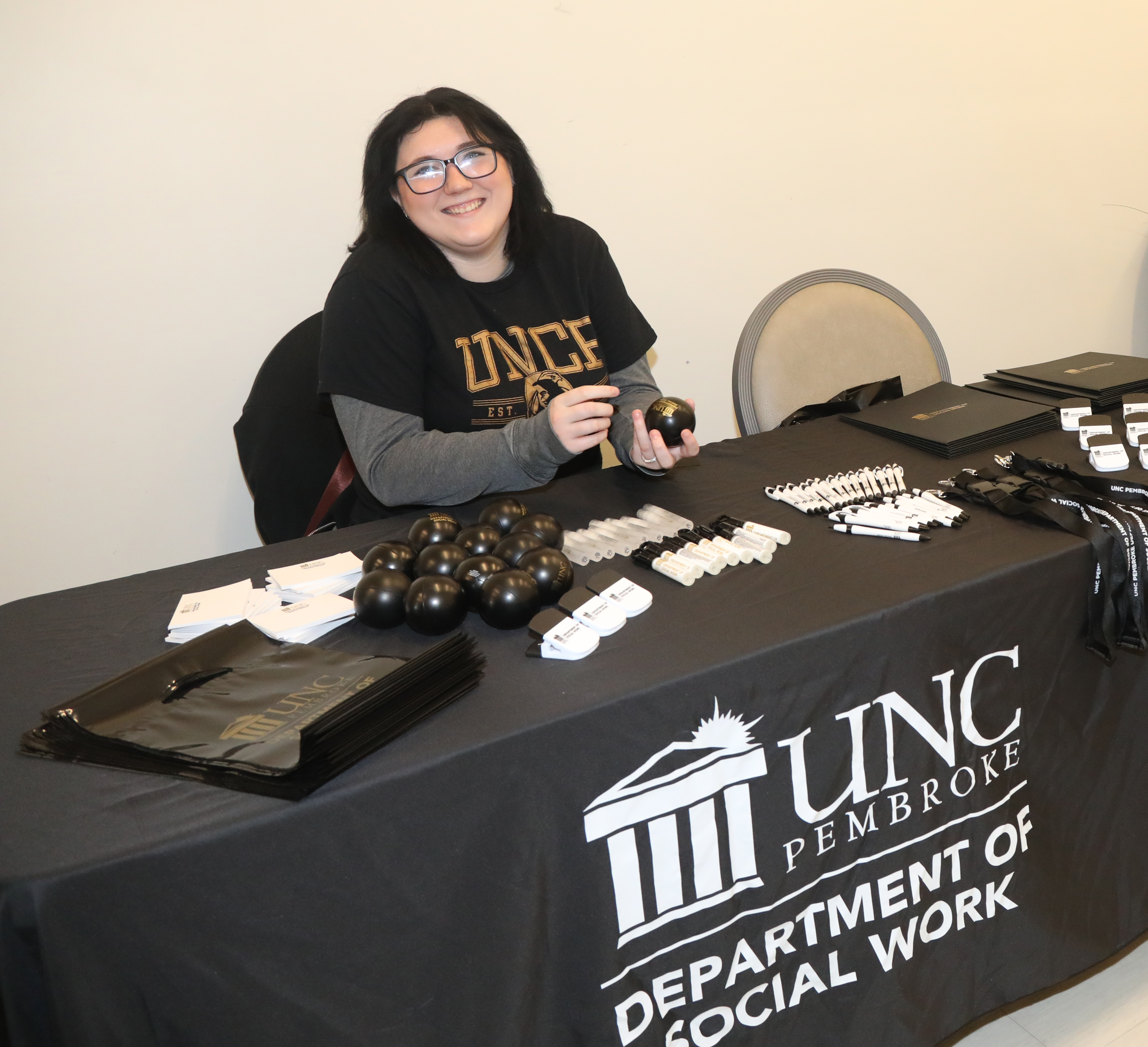

Minor in Social Welfare
Interested in social work but majoring in another field? The minor in social welfare
gives you a strong foundation in social service systems and community advocacy. Enhance
your major with relevant, people-centered skills.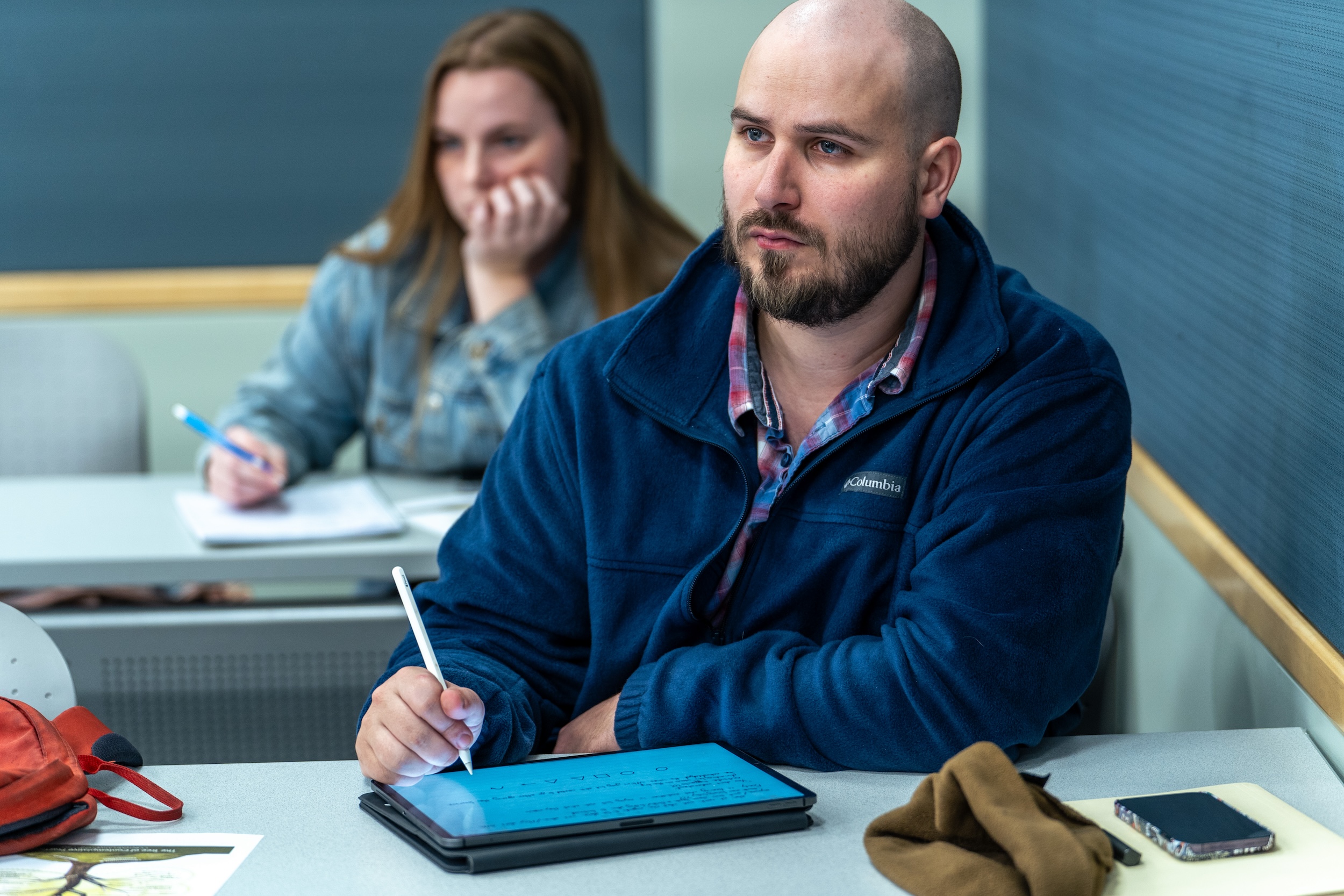
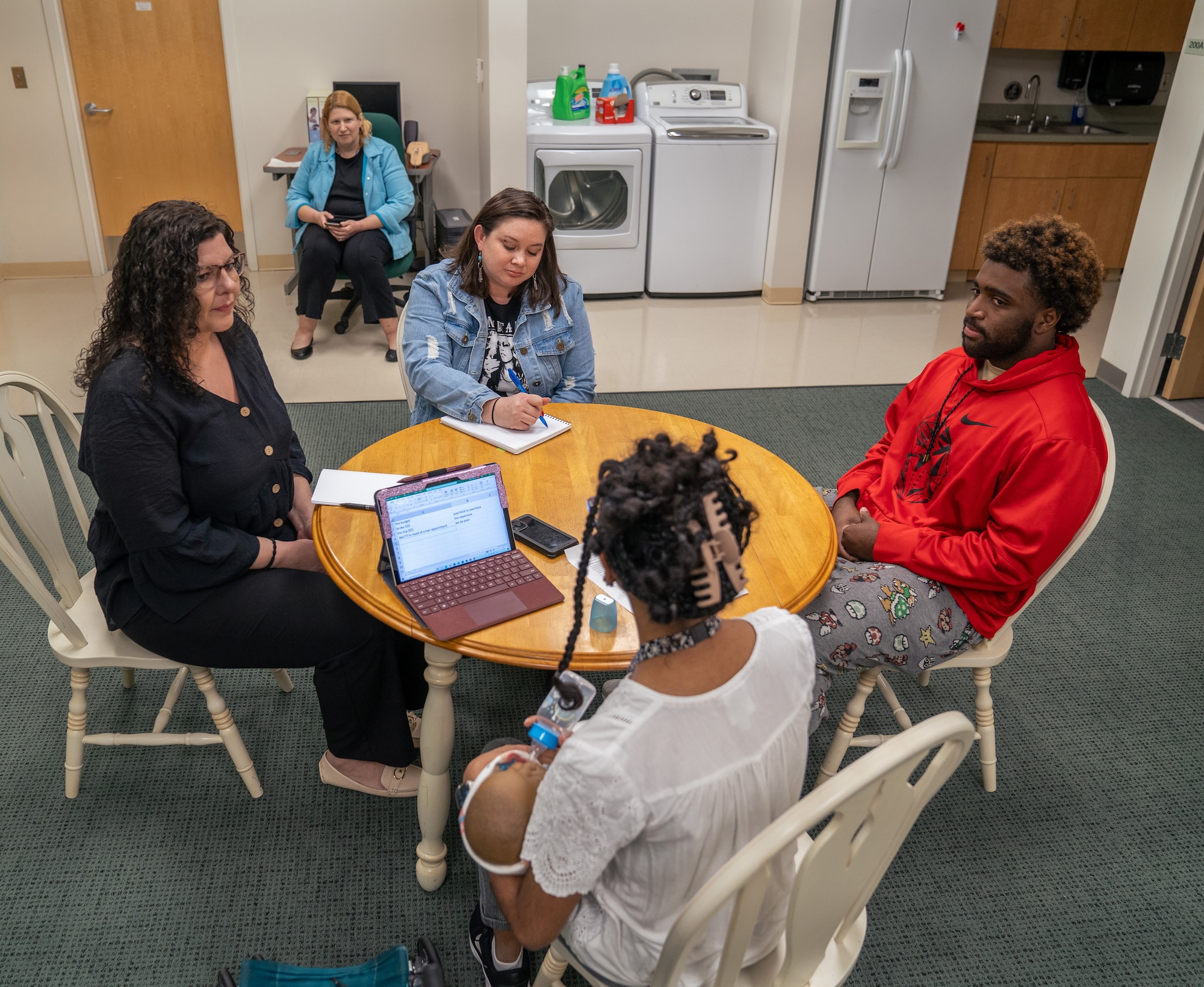

Continue Your Journey
With an MSW
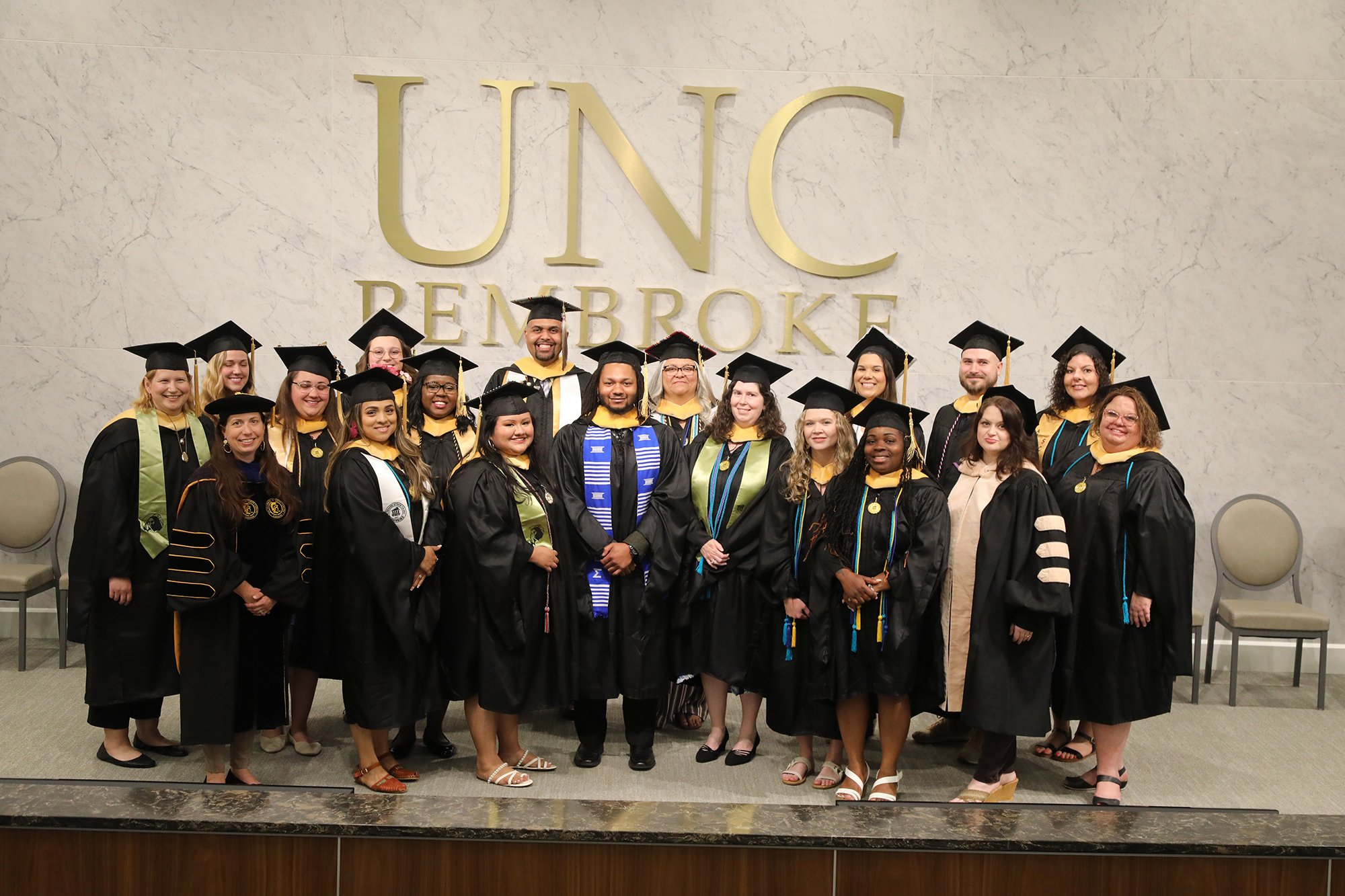
Build Experience & Community

UNCP Scholarships
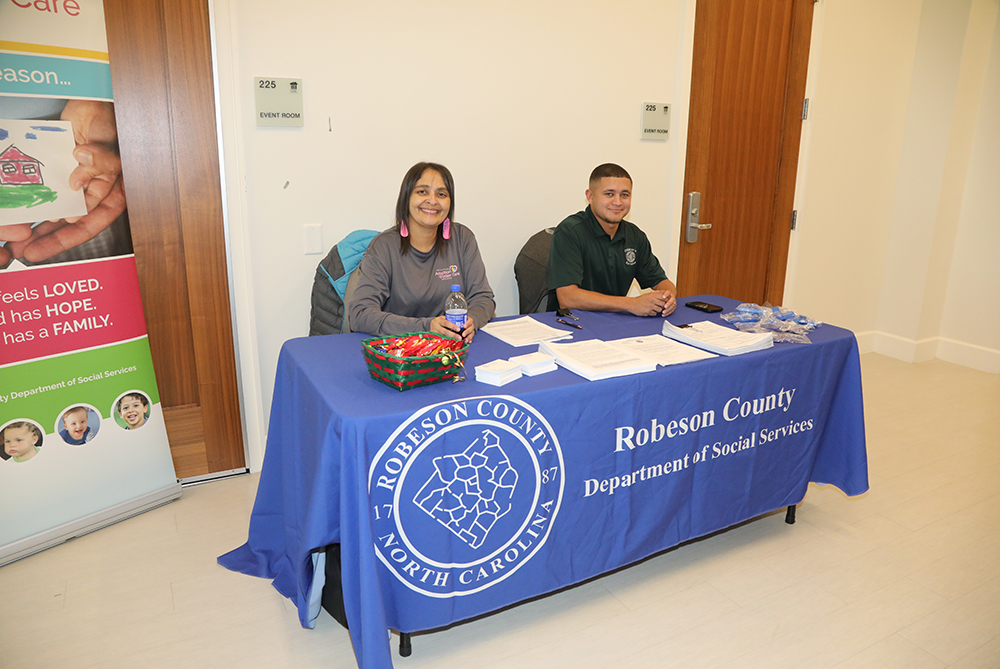
Campus Association of Social Workers
Beyond Graduation

I am amazed at how much I have gained and learned from this university. Because of the resources on campus, I was introduced to an internship with DSS. I work alongside Velvet Nixon, the director of the Robeson County Department of Social Services, as a peer support specialist and am currently building the program for future peer support members and the department will be sending me to get training so that I can be qualified as a Certified Peer Support Specialist.
Kenyonna Deese
Social WorkCommon Careers
- Case management
- Child and family services
- Behavioral health
- Aging and elder care
- School social work
- Community outreach
- Policy and advocacy

Want to Learn More?
or call us at 910.521.6262
Send us a message and one of our counselors will get back to you.
Meet Our Faculty

Similar Programs

UNCP Social Work is accredited by the Council on Social Work Education's Board of Accreditation. Accreditation of a baccalaureate or master's social work program by the Council on Social Work Education's Board of Accreditation indicates that it meets or exceeds criteria for the assessment of program quality evaluated through a peer review process. An accredited program has sufficient resources to meet its mission and goals and the Board of Accreditation has verified that it demonstrates compliance with all sections of the Educational Policy and Accreditation Standards. Accreditation applies to all program sites and program delivery methods of an accredited program. Accreditation provides reasonable assurance about the quality of the program and the competence of students graduating from the program.


